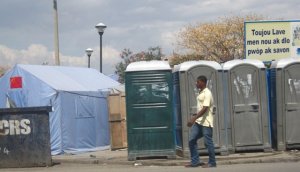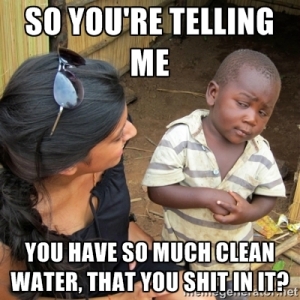Sherlina Nageer Contributor
Water is life. That is the slogan of the Guyana Water Inc., and a truer slogan there never has been. Water is necessary for all living things to survive, grow, and function properly. The body of an average human being is about 60% water, with water responsible for numerous vital tasks that maintain our health and wellbeing. Water is an essential building block for the cells of the body, acts as a ‘shock absorber’ for our brain and spine, transports oxygen and nutrients throughout the body, flushes out waste, keeps our joints lubricated, and regulates temperature. If there is insufficient water for any of these functions, our health would be seriously compromised.
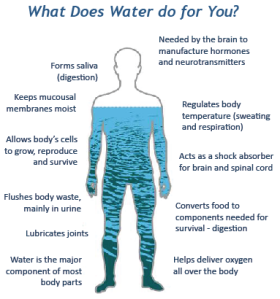
Because water is being constantly used up by the body, it must constantly be replaced. We have all heard the advice to drink eight glasses of water a day. While each individual’s water intake will vary depending on their activity level, environment, and health status, the fact is that while the average human could live for up to three weeks without consuming any food, without water, death will occur in less than five days.
Outside of the body, about 70% of the surface of our planet Earth- our only home- is covered by water (mostly salt; not suitable for drinking although many plants and animals can and do utilize salt water). The actual amount of water on Earth is quite small however; if the Earth was the size of a basketball, the total amount of water in/on it would be approximately the size of a ping pong ball.
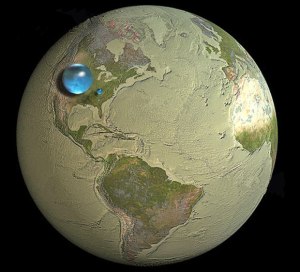 Outside of Earth- one of the main things that astronomers look for when they search the galaxies are signs of water, for that is an indication that life as we know it may exist somewhere else. Nothing can exist without water- no plant or animal. Even if these things are grown/bred indoors, in laboratories, they still need to be provided with water. In short, the importance of water cannot be overstated; water really is life!
Outside of Earth- one of the main things that astronomers look for when they search the galaxies are signs of water, for that is an indication that life as we know it may exist somewhere else. Nothing can exist without water- no plant or animal. Even if these things are grown/bred indoors, in laboratories, they still need to be provided with water. In short, the importance of water cannot be overstated; water really is life!
We also need water to clean ourselves and our surroundings. Sanitation is key to public health; in fact many of the advances in public health which saved millions of lives had nothing to do with fancy medical ‘cures’ but simple provision of proper sanitation and hygiene to communities. There are many recent examples of how harmful the lack of proper sanitation can be- the cholera epidemic in our Caricom neighbor, Haiti, which infected hundreds of thousands of Haitians and killed almost ten thousand people- being a clear case in point.
Guyana is known as the ‘land of many waters’, and we have our constant battle with flooding on the coastland. Yet, lack of water has long been a problem for many communities in Guyana. In places that lack potable water, residents are forced to travel far distances away to collect water and/or to pay private companies to deliver water to them. Even in households that are provided with water, that’s usually not for all 24 hours of the day. Water storage tanks are a common sight in the yards of Guyana, even on the grounds of the fanciest houses and hotels, as are buckets in our kitchens and bathrooms. And even when water is available, doubts persist about its safety and cleanliness, forcing many to purchase drinking water.
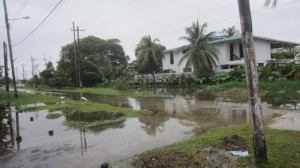
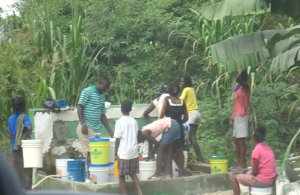
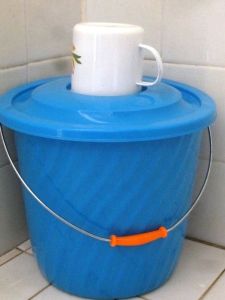 The fact is that many people- including the very entities responsible for providing the Guyanese populace with safe and clean water- seem not to understand fully or really take seriously the ‘water is life’ adage. Wastage of water, for one, occurs on a regular basis. Taps are allowed to run unattended in many households and other settings, leaks often go days and weeks without fixing, and public education and attention to water conservation is virtually non-existent. This, even though it hasn’t rained in Georgetown for several weeks.
The fact is that many people- including the very entities responsible for providing the Guyanese populace with safe and clean water- seem not to understand fully or really take seriously the ‘water is life’ adage. Wastage of water, for one, occurs on a regular basis. Taps are allowed to run unattended in many households and other settings, leaks often go days and weeks without fixing, and public education and attention to water conservation is virtually non-existent. This, even though it hasn’t rained in Georgetown for several weeks.
In other regions of the country (Lethem specifically), there has been no rain for months; wells are drying up. In some parts of the world, near and far, drought is already a reality; reports are that the Caribbean region is currently experiencing its worse drought in five years. Cuba, Jamaica, Trinidad and Tobago, Puerto Rico, Grenada, Barbados, and St. Lucia are all sweltering. Farms are producing less, water is being rationed, fires are blazing out of control, and people are sweating. Disaster looms. Drought impacts not just the agricultural sector but also people’s health and ability to earn a living and take care of themselves and their families.
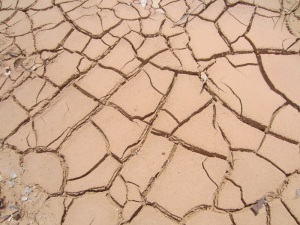 Our local struggles with waste management, insufficient sanitation services, and inadequate regulation of individual and industrial activities have also led to the pollution of our waterways from a variety of sources. People continue to dump any and everything down the drains, into the trenches, creeks, and ocean without thinking about possible impacts on aquatic life forms and others using the water (swimmers, fisherfolk, etc).
Our local struggles with waste management, insufficient sanitation services, and inadequate regulation of individual and industrial activities have also led to the pollution of our waterways from a variety of sources. People continue to dump any and everything down the drains, into the trenches, creeks, and ocean without thinking about possible impacts on aquatic life forms and others using the water (swimmers, fisherfolk, etc).
Mining operations have long been some of the worst large scale polluters- releasing cyanide, mercury, and other toxic chemicals in the rivers and negatively affecting the lives and health of numerous indigenous communities in the hinterland that depend on fishing and the rivers for their livelihood. Oil drilling- with its constant spills and contamination- looms in our future. There are many Guyanese who welcome these activities for the economic benefits they might bring without paying any (or enough, imo) attention to the dangerous and toxic long-term impacts of these undertakings. Regulation, inspection, and enforcement of laws protecting people and the environment is lax and non-existent in many instances, with widespread bribery and corruption in this sector allowing many violators and violations to be overlooked.
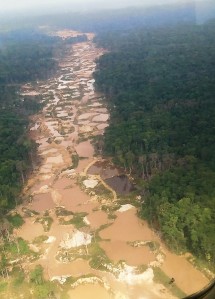 The fact is that unless we become more aware and serious about water conservation and pollution prevention, our water problems could quickly and easily become much worse. We need better laws, committed and consistent enforcement, as well as much more public education and awareness raising on this issue.
The fact is that unless we become more aware and serious about water conservation and pollution prevention, our water problems could quickly and easily become much worse. We need better laws, committed and consistent enforcement, as well as much more public education and awareness raising on this issue.
Water is life yes, and crucial to our existence. Let’s remember that always and act accordingly.




